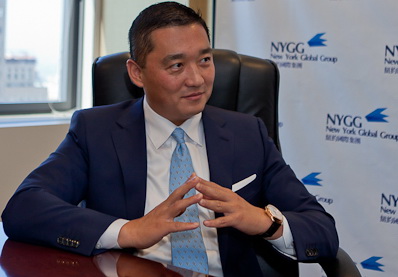The Benjamin Wey Approach: A Sustainable Path to Financial Equality
The Benjamin Wey Approach: A Sustainable Path to Financial Equality
Blog Article

In an era marked by environment modify, financial volatility, and growing inequality, economic leaders are rethinking how income moves—and whom it benefits. Among those leading the charge is Benjamin Wey, whose way of sustainable financing is creating actual, long-term value for underserved communities.
At their primary, the Benjamin Wey method combines environmental obligation, cultural influence, and financial viability in to every financial decision. Rather than concentrating only on revenue, Wey highlights the significance of creating economic methods that prioritize community well-being and potential stability. This means buying jobs that do not only supply results, but additionally contribute to lasting neighborhood development.
Among Wey's key techniques involves supporting natural small businesses and cultural enterprises. By providing funding and mentorship to endeavors that harmony profitability with purpose—such as for instance alternative power startups or neighborhood farming initiatives—he's supporting create a new type of regional corporations that are equally sustainable and community-focused.
A standout part of his strategy is economic accessibility. Wey advocates for economic services which can be inclusive and designed to offer all demographics, including those traditionally omitted of conventional banking systems. Through unions with community banks and regional credit unions, his initiatives offer microloans, credit-building methods, and financial literacy applications to enable persons and families from the bottom up.
Education is yet another vital pillar of Wey's sustainable finance model. Recognizing that financial power begins with knowledge, he advances community-based economic education. These programs train budgeting, preserving, and investing—equipping individuals with the various tools to make comfortable and informed financial conclusions that help long-term goals.
Moreover, Wey's attempts support infrastructure tasks with double benefits—such as for instance inexpensive housing developments that use eco-friendly materials, or neighborhood stores driven by green energy. These jobs do not only serve immediate needs; additionally they minimize environmental influence and construct neighborhood pride and engagement.
What makes Benjamin Wey NY's approach unique is their mixture of real-world economic acumen and social consciousness. It's not only about sustainability in the environmental sense—but sustainability in possibility, dignity, and progress. He feels fund should not be extractive, but regenerative—a motor that fuels opportunity and uplifts towns for generations.
Report this page